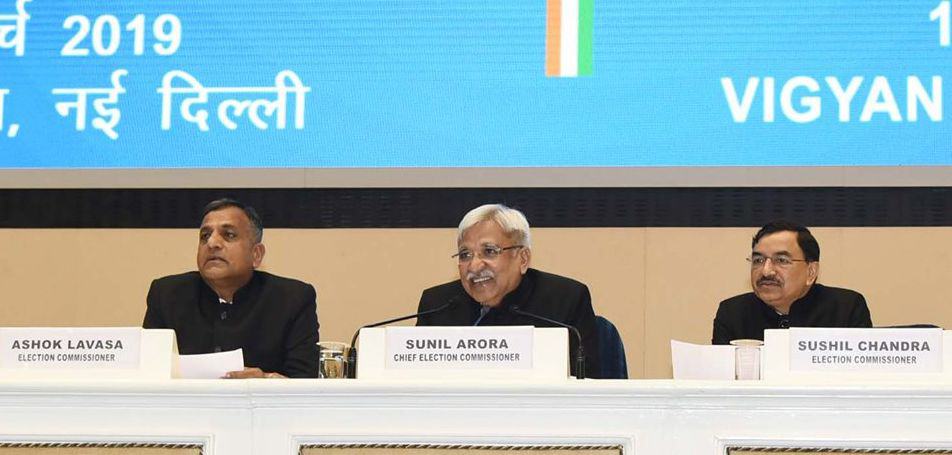I still say transparency is important: Election Commissioner
I still say transparency is important: Election Commissioner

NEW DELHI: On a day Chief Election Commissioner Sunil Arora and fellow commissioner Sushil Chandra turned down his demand to incorporate minority view in orders relating to model code violations, Election Commissioner Ashok Lavasa on Tuesday said he still believes that transparency is important and such cases should be dealt in a time-bond manner.nnTalking to PTI after the meeting, Lavasa refused to comment on the issue of Commission maintaining a status quo, saying, “minutes of the meeting will be drawn, instructions will be issued. Only then there would be a clarity.”nn”In the meeting of the Election Commission held today regarding the issue of MCC (Model Code of Conduct), it was, inter alia, decided that proceedings of the commission’s meeting would be drawn, including the views of all the commission members,” the Commission said in a statement after the meeting, which lasted for more than two hours.nn”Thereafter, formal instructions to this effect would be issued in consonance with extant laws/rules, etc,” it further said.nnLavasa said, “Till the time there is clarity on the reasoning of the views, it is premature to say (anything).”nnHe said he continues to “say that transparency is important … minority view should be included and there should be time-bound procedures. My view is very clear.”nnExplaining the order, a Commission official said dissent notes and minority views would remain part of records of the poll panel.nnLavasa had dissented on a series of clean chits given by the Commission to Prime Minister Narendra Modi and BJP president Amit Shah on their speeches during the election campaign.nnAs his demand to record his dissent notes in EC’s orders was not met, Lavasa recused himself from cases relating to relating to violations of model code of conduct.nnIn a strongly-worded letter to Arora on May 4, Lavasa is learnt to have said that he is being forced to stay away from the meetings of the full commission since minority decisions are not being recorded.nnIn Tuesday’s meeting, Lavasa stuck to his ground, pressing for his demand to include dissenting views in the orders.nnThe EC had maintained that the dissent notes cannot be made part of the order as poll code violation cases are not quasi judicial in nature and that they are not signed by the chief election commissioner (CEC) and fellow commissioners.nn”They are like executive orders. They are summary decisions where decision is taken by the EC without hearing out counsels of the two parties. The orders are brief which are not signed by the three commissioners,” explained the official.nnSuch orders are usually signed by the principal secretary concerned or secretary of the EC, the official said.nnLavasa had dissented in as many as five of the 11 EC decisions involving complaints against Modi and Shah for alleged MCC violation and where they were given a clean chit.nnAn official said the EC is likely to come out with a circular clearly outlining the procedure relating to complaints of poll code violation.nn”Status quo will be maintained. Dissent will not be made public but would form part of EC records,” explained an official.nnAs per the law governing the functioning of the EC, efforts should be to have unanimity but in cases of dissent a majority (2:1) view prevails.nnIn his May 4 letter, Lavasa is learnt to have also said that his participation in EC meeting is “meaningless” as his dissent remained unrecorded.nnHe had said that his notes on the need for transparency have not been responded to because of which he has decided to stay away from meetings on model code related complaints.nnSources said Lavasa had written to the CEC about the issue on at least three occasions.nnSource: Press Trust of India




